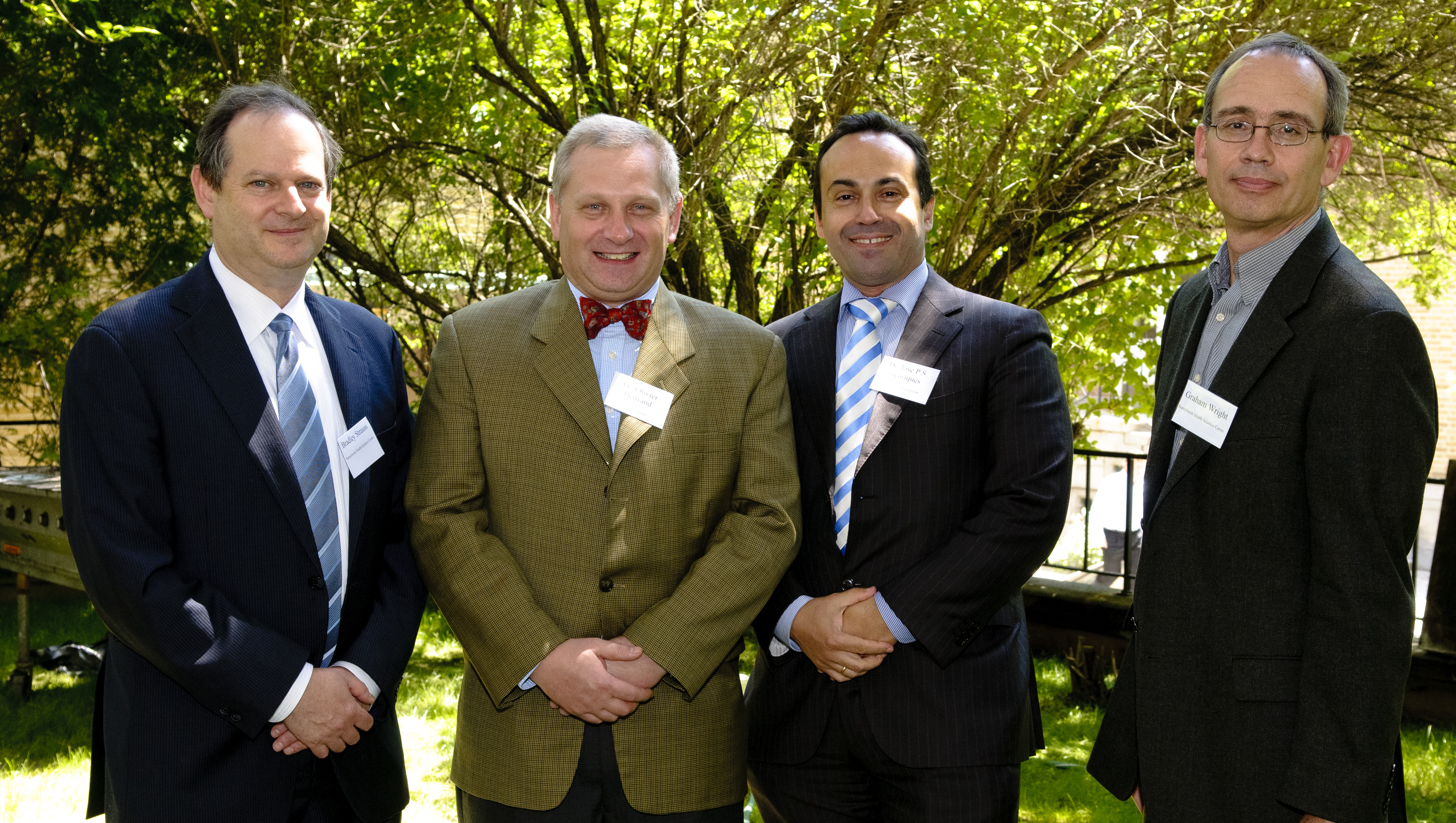Researchers Convene at Sunnybrook for Canadian CTO Summit
By Jim Oldfield
On June 11, Sunnybrook Research Institute (SRI) hosted the third annual Canadian CTO Summit in Harrison Hall. The event provided a forum for presentations of research on chronic total occlusions (CTOs), including "first-in-man" findings from a trial underway at Sunnybrook.
Chronic total occlusions are common arterial blockages. They affect about 30% of patients with coronary artery disease and more than 50% of patients with peripheral (limb) arterial disease. They frequently result in angina and limb ischemia that limits daily activities, and sometimes in limb amputation.
Dr. Graham Wright moderated the summit. Wright is an imaging scientist and director of the Schulich Heart Research Program at SRI, and the lead investigator of the nationwide Canadian Institutes of Health Research (CIHR) team in occlusive vascular disease. "Throughout the year, our success can seem incremental, but once everyone gets together we can see real progress in implementing solutions to some of the translational research problems the CTO team first posed three years ago," he said.
With its focus on facilitating interaction between interventional cardiologists and basic-science researchers, the Canadian CTO Summit is unique. This year was no exception, as attendees heard talks on issues relevant to bringing scientific innovations to patients with CTOs; characterization of preclinical and clinical CTOs through imaging and histology; determination of which patients would benefit from emerging and existing therapies; case studies and reports on quality of life in patients with CTOs; and new imaging strategies and treatments, including percutaneous intervention (PCI), a minimally invasive technique that can revascularize occluded arteries.
More cardiologists and researchers are exploring PCI as an alternative to medical management and bypass surgery—the two most common approaches to CTOs. Management, which requires medication and exercise, is often unsuccessful, and can lead to a compromised quality of life for patients. Bypass surgery comes with risks, considerable patient recovery time and use of expensive health care resources.
Dr. Bradley Strauss is a co-principal investigator of the CIHR team and the head of the Schulich Heart Centre Division of Cardiology. Ten years ago, Strauss and his lab developed an enzyme called collagenase that can help loosen the tough fibrous collagen that caps many CTOs, and that makes them difficult or impossible to cross with a guidewire during PCI.
In 2003, Strauss showed in a preclinical model that collagenase produced a two-fold improvement in occlusion-crossing during PCI, the goal of which is stenting or angioplasty to re-establish blood flow. At the summit, Strauss presented the first findings on the efficacy of this therapy in a small number of patients.
The results are promising.
In the study, a collaboration between St. Michael's Hospital and Sunnybrook, researchers used PCI after an injection of collagenase to revascularize four of the five patients with occlusions that had proven uncrossable in previous interventions. The second cohort of patients will undergo treatment this summer.
"Our preclinical studies showed significant improvement in lesion crossing with collagenase, and the clinical trial is showing encouraging results in safety and efficacy," said Strauss. "So the news is good. We just need the right combination of dose and instruments to get through these difficult occlusions."
Wright was also upbeat about the findings. "Brad has been working for 10 years on this new strategy for crossing CTOs, so it's gratifying to see the first results of that work in patients," he said. "That said, the summit isn't just about crossing. It's about risk-benefit analyses for several subgroups of CTO patients and the health care system as a whole."



